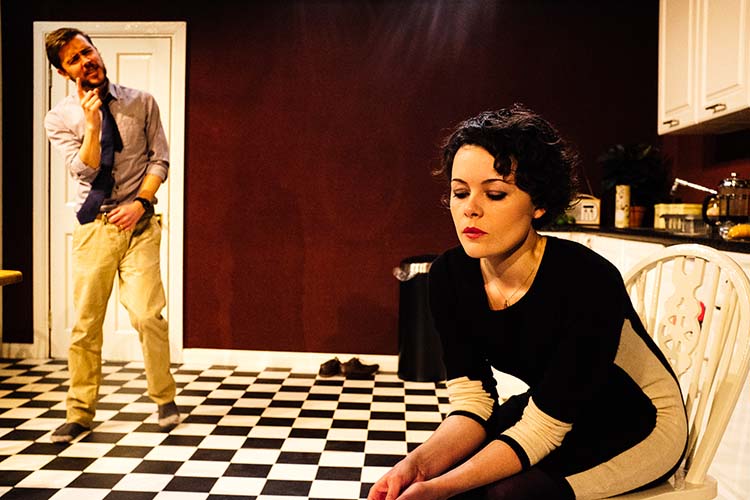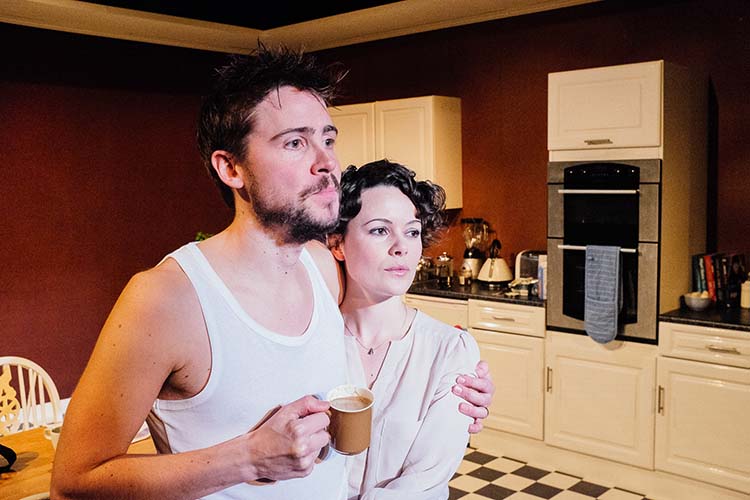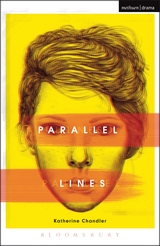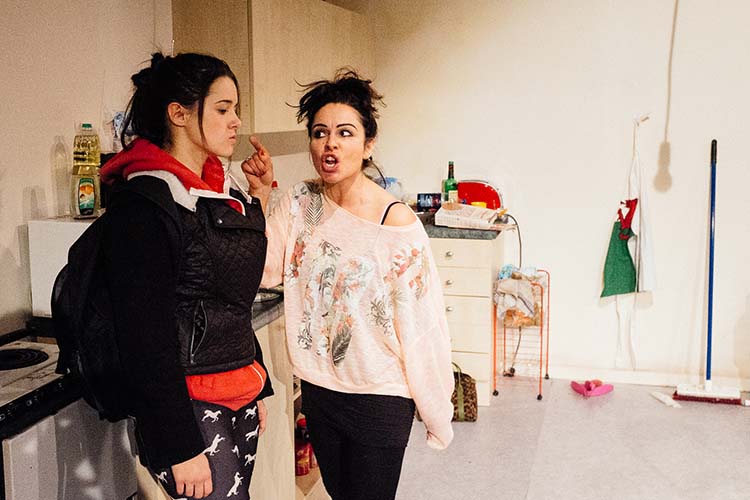Phil Morris reviews Katherine Chandler’s newest play with fringe theatre company Dirty Protest, Parallel Lines.
At what point can we describe a nation’s theatre culture as mature and self-confident? Surely it is when the themes of its plays no longer hark back to that nation’s past but emerge, instead, from a pressing contemporary moment. Perhaps it is when the subjects of its plays are rooted in specific geographical places though remain nonetheless applicable and meaningful to the lives of people living outside its localised context. Katherine Chandler’s new play Parallel Lines reminds us how exciting and challenging Welsh drama can be, once we set aside – albeit temporarily – mining, Max Boyce and the Mabinogion, and interrogate the problems of modern life in twenty-first century Wales.
The over-arching theme of Parallel Lines is social division, but in Chandler’s finely attuned script and Catherine Paskell’s adroit staging the signifiers of class are delineated with subtlety and nuance – as much a matter of lifestyle as income level. Signe Beckmann’s simple but effective set consists of two halves of two very different kitchens; fifteen-year-old Steph and her blowsy mother Melissa sit around a Formica table sipping tea from chipped mugs, wondering idly if their tiny oven actually works, whereas professional couple Simon and Julia drink coffee at their farmhouse-style table in their elegantly fitted kitchen listening to Radio 6. Both pairs occupy the same theatrical space but their lives are separated by mutual, class-based incomprehension and suspicion. All four are bound together, however, by the fallout from Steph’s accusation of sexual impropriety against Simon. The action of Chandler’s play is driven by the struggle by all to establish what exactly happened between pupil and teacher.
While Parallel Lines has a certain ‘straight-out-of-the-newspaper-headlines’ topicality, Chandler’s treatment of her subject is searching and sympathetic rather than sensationalistic. One of the many virtues of her play is that it examines the emotional fallout of sexual abuse – for the victim, witnesses and relatives – and eschews posing the ‘Is he or isn’t he?’ question so beloved of television melodrama. The final plot twist, which will not be revealed here, satisfies only because it complicates the many readings of the text that have, up until that point, played out in the minds of its audience.

Paskell’s cast serve her well, although technically a four-hander the production stands and falls on the central performance of Rachel Redford as its protagonist Steph. Redford is convincing as the tough and precocious teenage schoolgirl, although in the play’s early scenes there are occasions when her RADA trained voice muddles her Cardiff accent. As the action progresses, however, Redford establishes levels of complexity in her characterisation with deft stagecraft – a particular highlight is Steph’s early-hours dance alone in her kitchen. In this brief scene, Redford communicates just how delicately poised Steph is between girlhood and adulthood, between her growing self-awareness of a burgeoning sexuality and the simple joys of expressing oneself through dance. Chandler has created a type of protagonist rarely seen on stage, a young woman who has been subject to sexual violence but who refuses to play the victim and seeks justice on her own terms. Redford rises to the challenge of portraying Steph’s strength and guile, and at the climax of the play endows the character with considerable force.
Jan Anderson does an admirable job of reconciling the contradictions in Melissa, the former-prostitute-turned-bad-Mum, who is, by turn, both a loving and neglectful parent. Anderson’s performance provides many welcome laughs, but she never loses sight of her character’s darker side. Gareth Pierce, as Simon, presents us with a layered and convincing portrait of a man collapsing under the weight of his moral cowardice. In his early scenes we glimpse the likable young teacher that initially inspired trust in Steph, but then slowly watch him disintegrate under the weight of his wife’s lingering doubts. Lisa Diveney, as Julia, rounds off an accomplished ensemble with a performance that builds intelligently towards the awful realisation that her husband hides a terrible secret.
Simon’s secret is not one of melodramatic evil, which would belong to a lesser play, rather his actual crime speaks to the play’s central theme of class division. The milieu of Steph and Melissa remains parallel to that of Simon and Julia because of the huge social gulf that divides them. The kitchen table conversations of Simon and Julia are redolent with the bourgeois anxieties and misapprehensions both feel toward the working-class children they teach. They appear to regard these children as menacing hoodie-wearing members of an underclass from which they are alienated by fear and insecurity. Steph’s intelligence and resourcefulness might provide her with future social mobility, but she refuses to adopt what she perceives as the hypocritical niceties of the middle-class and rebukes Simon’s weakness with devastating moral authority.

At first, Parallel Lines appears to be a social realist play in the kitchen sink tradition, but Chandler’s deployment of complex imagery and highly-charged language elevates the text from the banal everyday so that its social analysis is both compelling and urgent. There are occasions in Chandler’s play when the imagery is somewhat overwrought – a brief section on the promise of resurrection offered by the humble poppy-flower seemed to be shoehorned in rather schematically. The play’s climax also felt a little rushed, even underdeveloped – although it is rare to find a play that can stand to be a little longer. Yet in spite of these faults in the text, both the play and its production stand as a considerable achievement for Chandler and Dirty Protest.
Parallel Lines may not be a ‘game-changing’ play set to change the face of Welsh theatre, but it is a very fine play by a talented writer who is making a significant contribution to Welsh drama. In order for ‘great’ plays to be produced in future by Welsh writers in Welsh theatres it is first necessary to build a ‘great’ audience. This will only be achieved when fine playwrights engage contemporary audiences with dramas that reflect – though not necessarily mirror – their contemporary lives. Katherine Chandler, and her like, must be supported in their efforts to create a forward-thinking, modern and mature Welsh drama, and audiences should repay the compliment of having their lives represented on stage, in their complexity and richness, by going to see this play.
Dirty Protest is to be commended for producing Parallel Lines, for which Katherine Chandler won the inaugural Wales Drama Award in 2012. Given both the play’s topical subject matter and its compelling young protagonist, it would seem to be an ideal vehicle for reaching young audiences across the country. In the mind of this critic, a tour of Parallel Lines would appear to be in order – certainly writer, cast and the production team have earned a shot at playing to a wider audience in Wales with this absorbing and moving drama.
Phil Morris is a regular contributor at Wales Arts Review.













